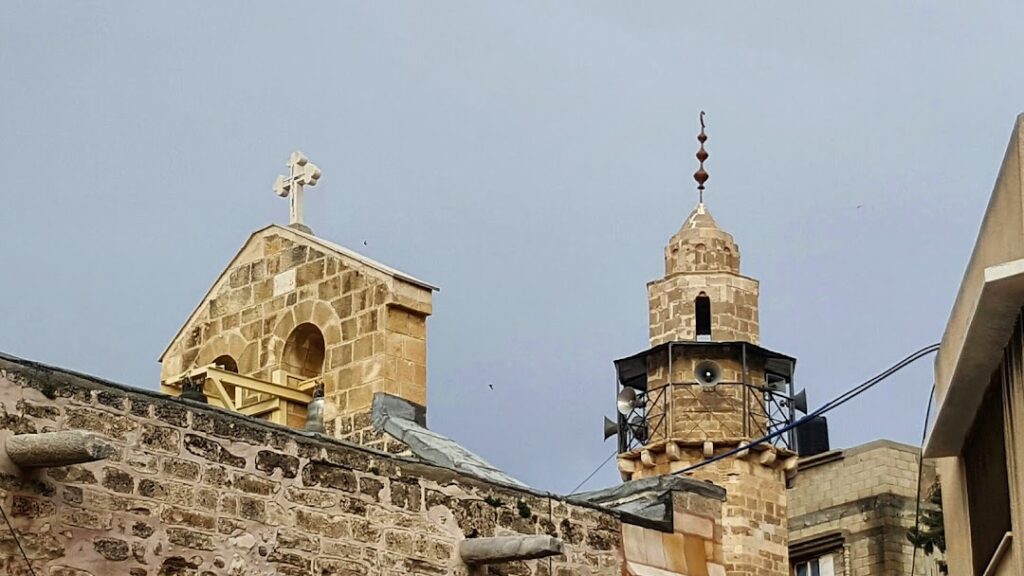
GAZA CITY, Gaza (BP) – Christians are sheltering in two churches in North Gaza where Israel has threatened a ground offensive in the Israel-Hamas war, International Christian Concern (ICC) told Baptist Press.
Israel will work to protect the churches amid the danger, Israeli Defense Forces (IDF) have reportedly told private sources, but ICC expressed to Baptist Press little confidence of the Christians’ safety as the war intensifies.
The churches could be hit as was the Al Ahli Arab Hospital, with each side blaming the other for such an attack, Joseph Daniel, ICC’s regional manager for the Middle East and North Africa, said Oct. 18.
“There’s a very high likelihood of the Christian places getting hit as the conflict continues, in some way,” Daniel said, “whether it be politicized or not.
“I have very little confidence (of the Christians’ safety) and a lot of fear that something like this would happen. That, just like it happened at the hospital, that a church or that Christians would be affected,” Daniel said. “And regardless of where the political blame is laid, it doesn’t do any help for those Christians who are suffering.”
Members of the dwindling Christian community of about 800 in North Gaza are sheltering at the St. Porphyrios Greek Orthodox Church and the Holy Family Roman Catholic Church, two of only three Christian churches in the area, Daniel said. None are sheltering at the local Baptist church that is not officially recognized as a church, Daniel said.
As many as 800 Christians could be sheltered in the two churches, along with other area residents, Daniel said, but exact numbers are not available.
The Greek Orthodox church borders the Anglican compound that includes the Al Ahli Arab Hospital, Daniel said, but is not directly adjacent to the hospital itself. The church was physically shaken and was hit with dust, and those sheltered there could see smoke from the explosion, Daniel’s sources said.
Christians found it safer to shelter at the church than to travel south as Israeli Prime Minister Benjamin Netanyahu advised in announcing an imminent ground offensive, Daniel said, because of the safety concerns germane to the Christian community.
“Initially, churches were much safer than [other] buildings,” Daniel said.
Even in more peaceful times, Christians there must be careful in choosing residences to avoid potential Hamas neighbors. Whenever violence escalates, churches would be the least likely targets of Israeli fire, as they are not affiliated with Hamas. Additionally, churches hold reserves of food and water, allowing those sheltered there to survive.
“They have a little, just enough to survive for now,” Daniel’s contacts told him Oct. 18.
Thousands of civilians have already been killed in the war sparked by a surprise Hamas attack Oct. 7, and Hamas has taken Israelis hostage. At least 32 Americans are confirmed dead and another 11 U.S. citizens are unaccounted for in the war, U.S. State Department spokesperson Mark Miller said Oct. 19.
Food and supplies had been cut off to the area, with borders closed, but Egypt announced Oct. 18 it would allow supply trucks to travel through its border to enter Gaza. Supplies will be allowed into Gaza as early as Oct. 20, NBC News reported.
As the global community reacts to the war, Daniel encourages Christians to remain sober in their response to the politically and religiously charged war.
God’s grace has long been seen in the cross-cultural unity displayed between Messianic Jewish and Arab Christian communities, he said, despite contention growing between Jews and Muslims.
“For Palestinian Christians in general, but really Gazans, they’re being squeezed between two hammers politically and socially in their everyday reality,” Daniel said.
“Really only a miracle of God, our prayers and a quick de-escalation, some kind of peace agreement,” Daniel said, “are really the only things I think would be constructive in helping this very small and already beleaguered Christian community in Gaza. They really need our prayers.”
–30–















